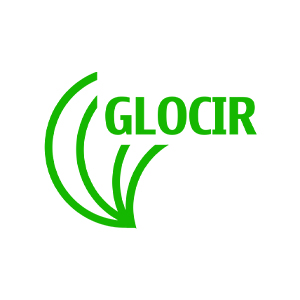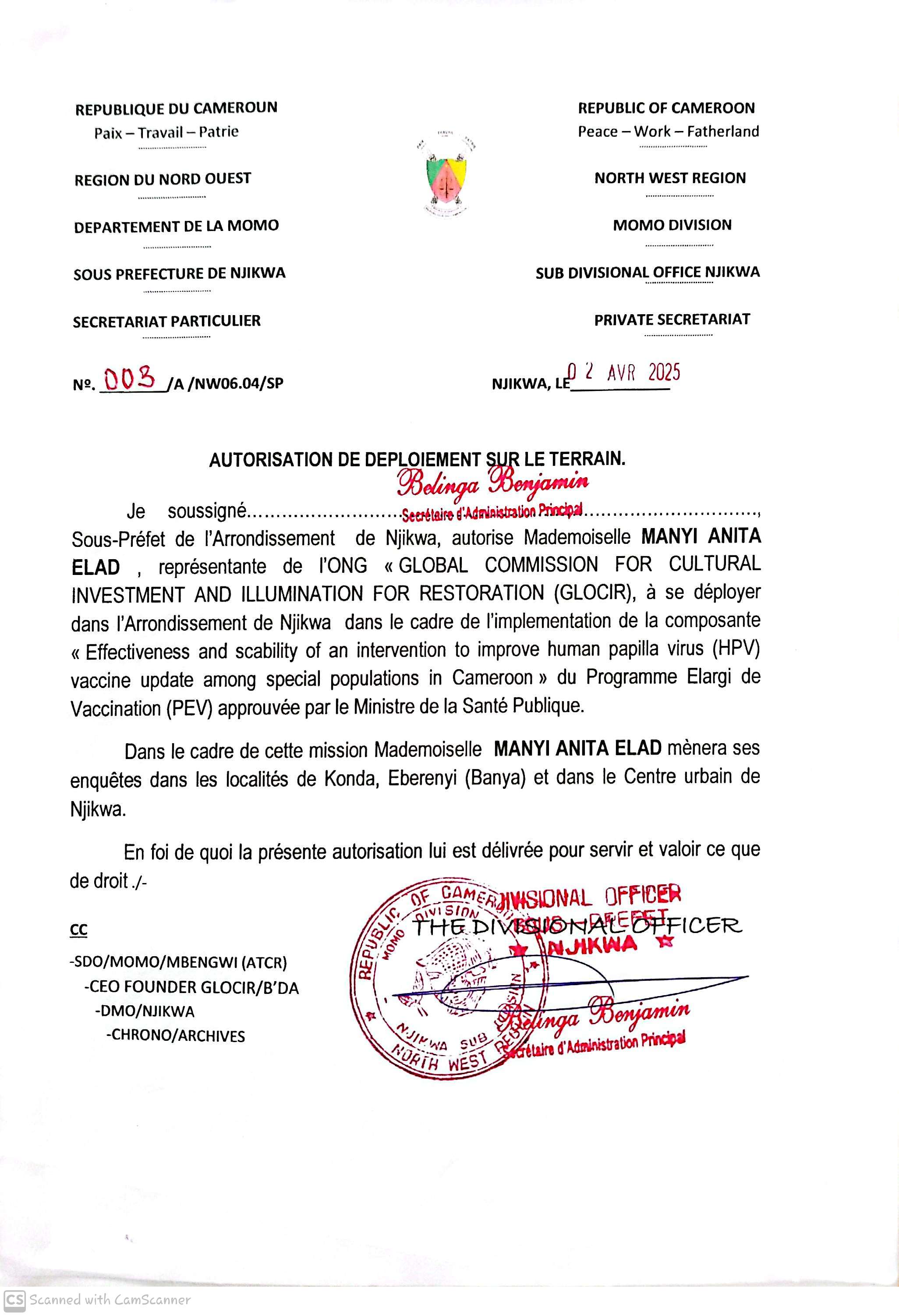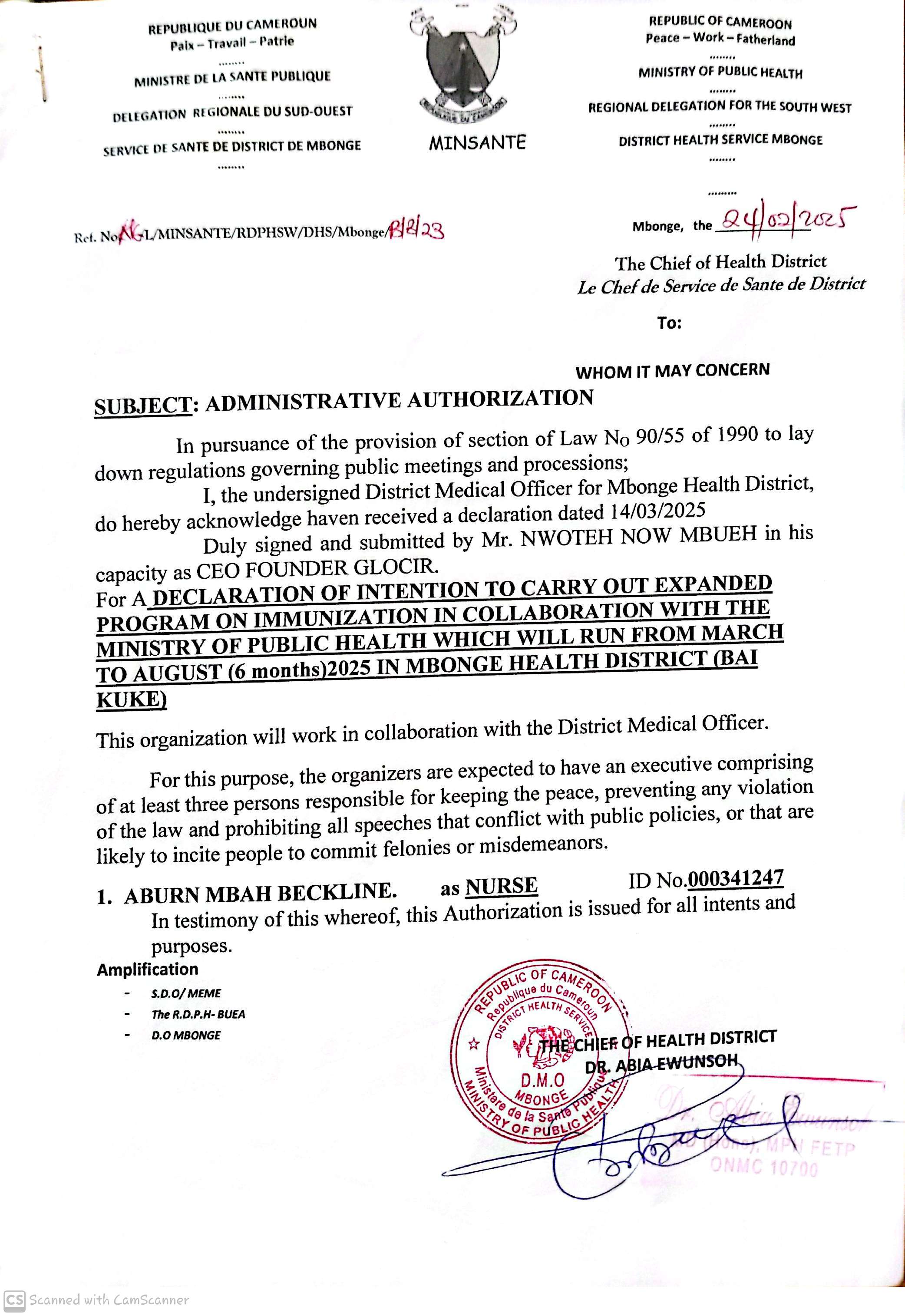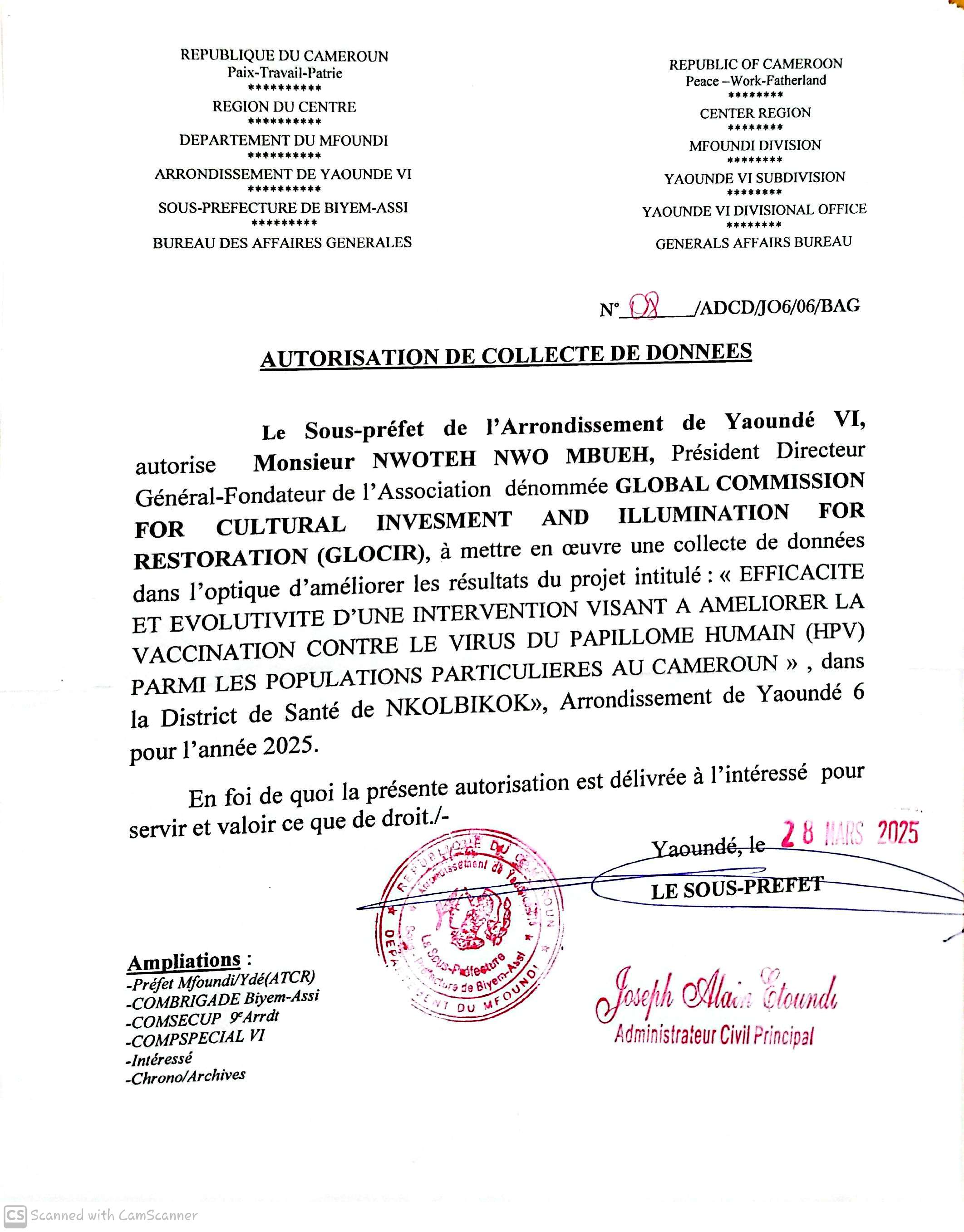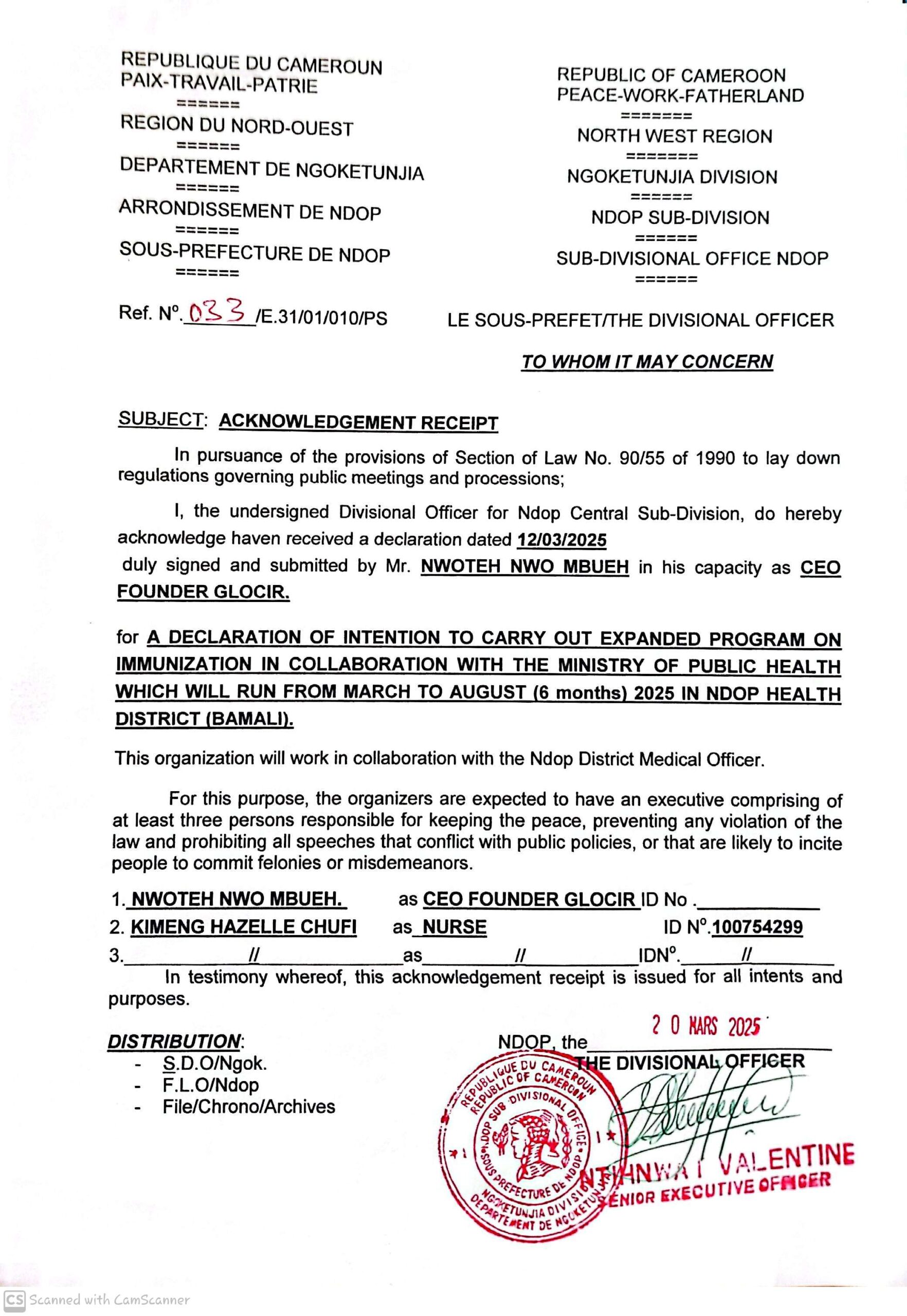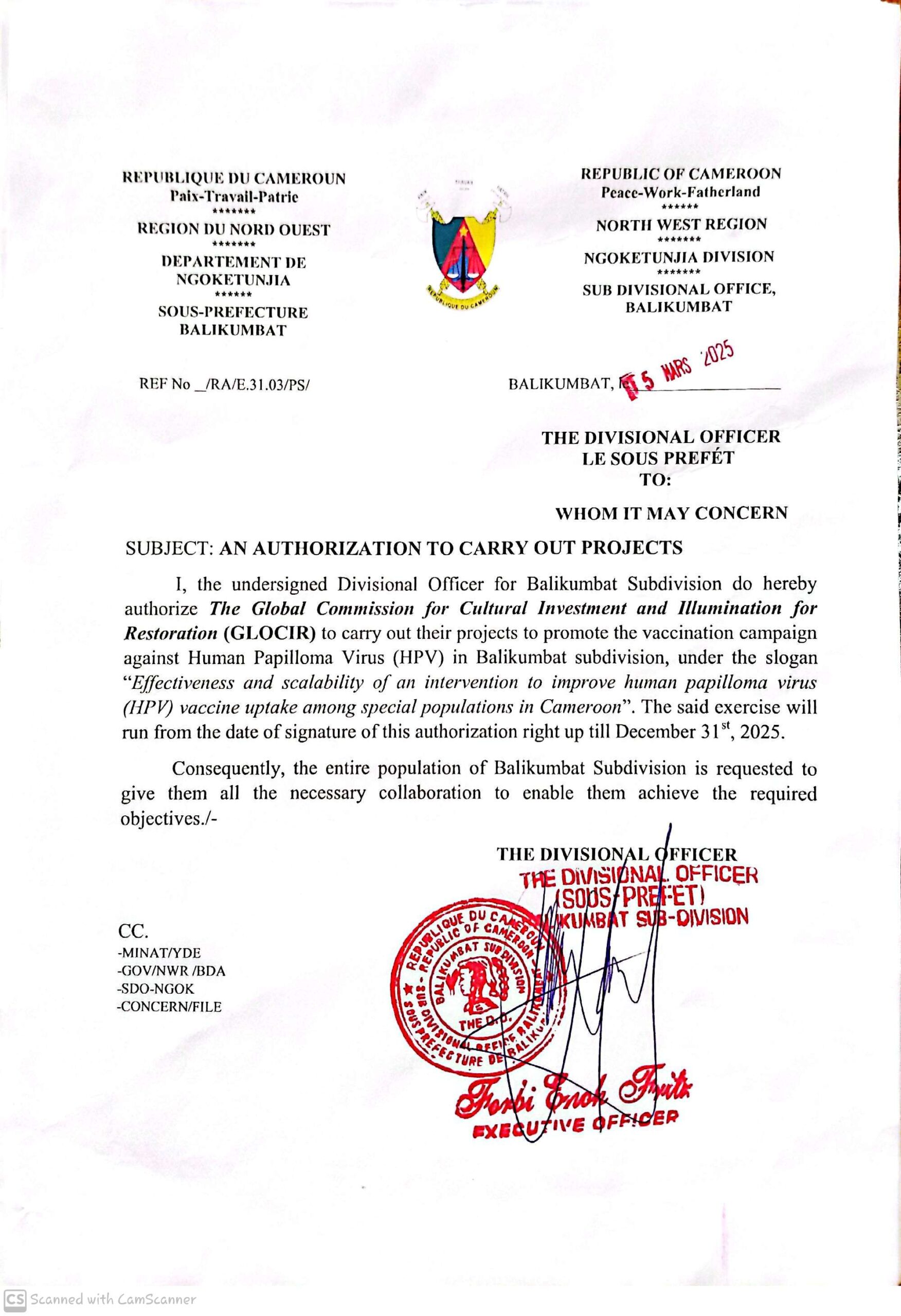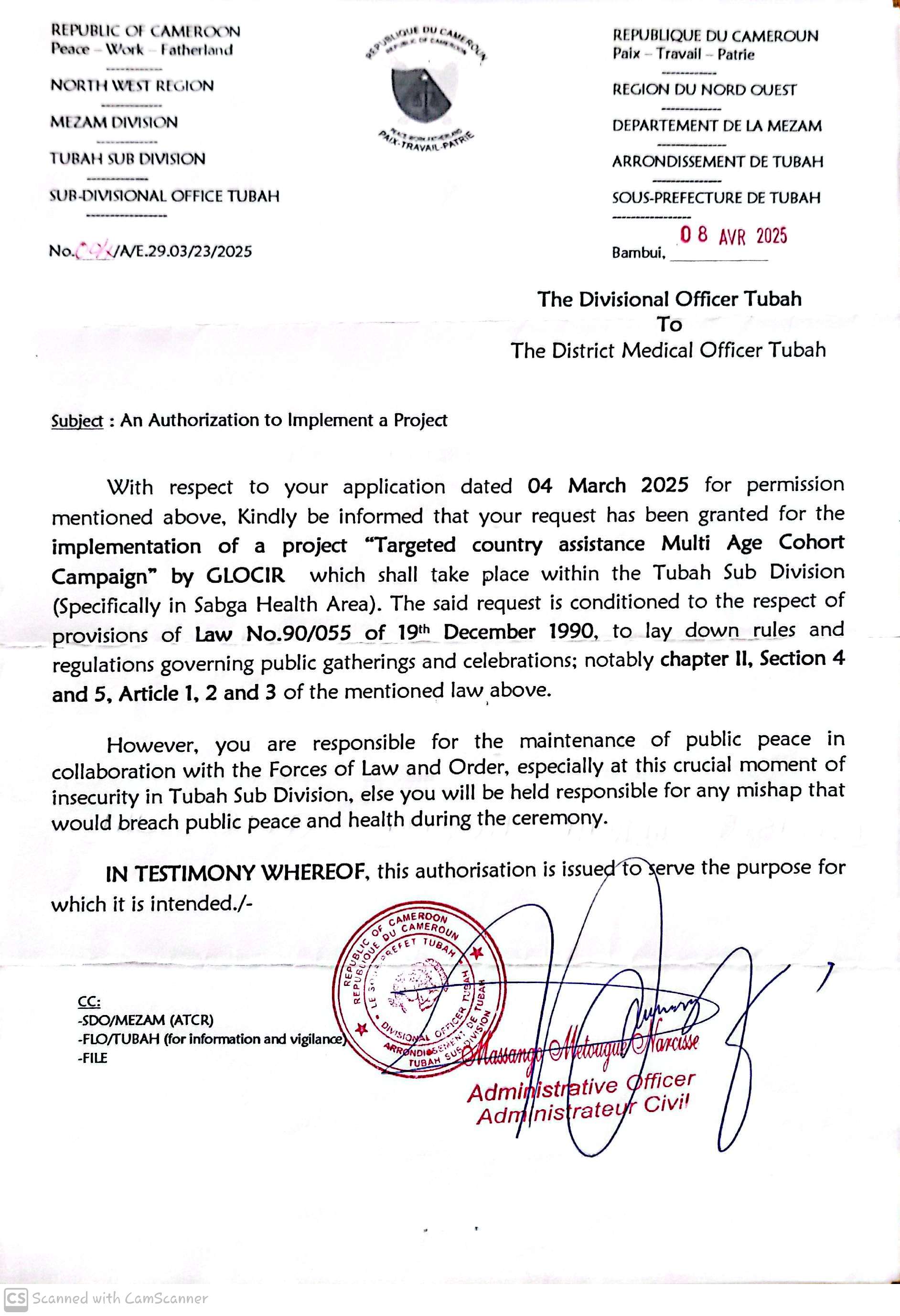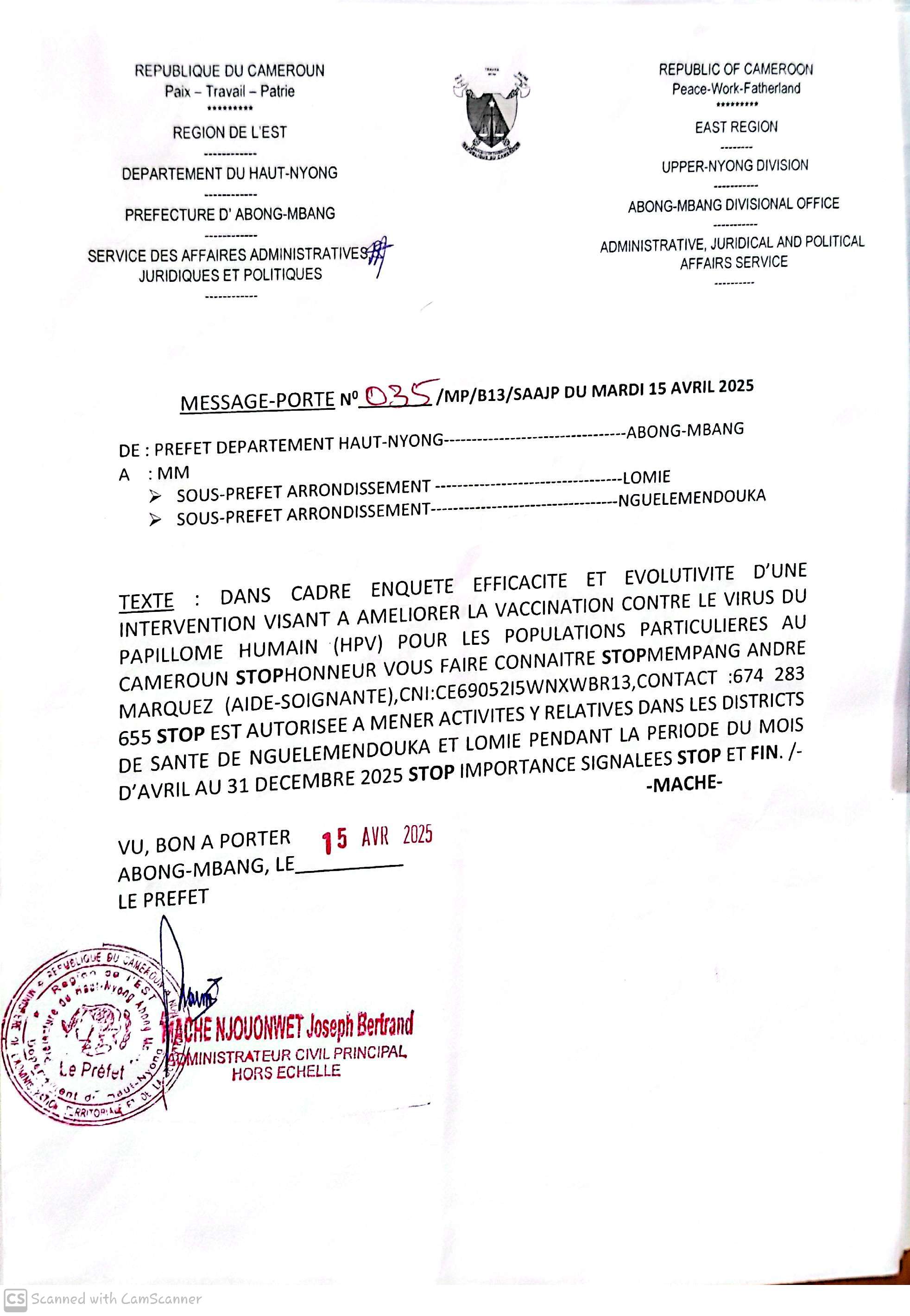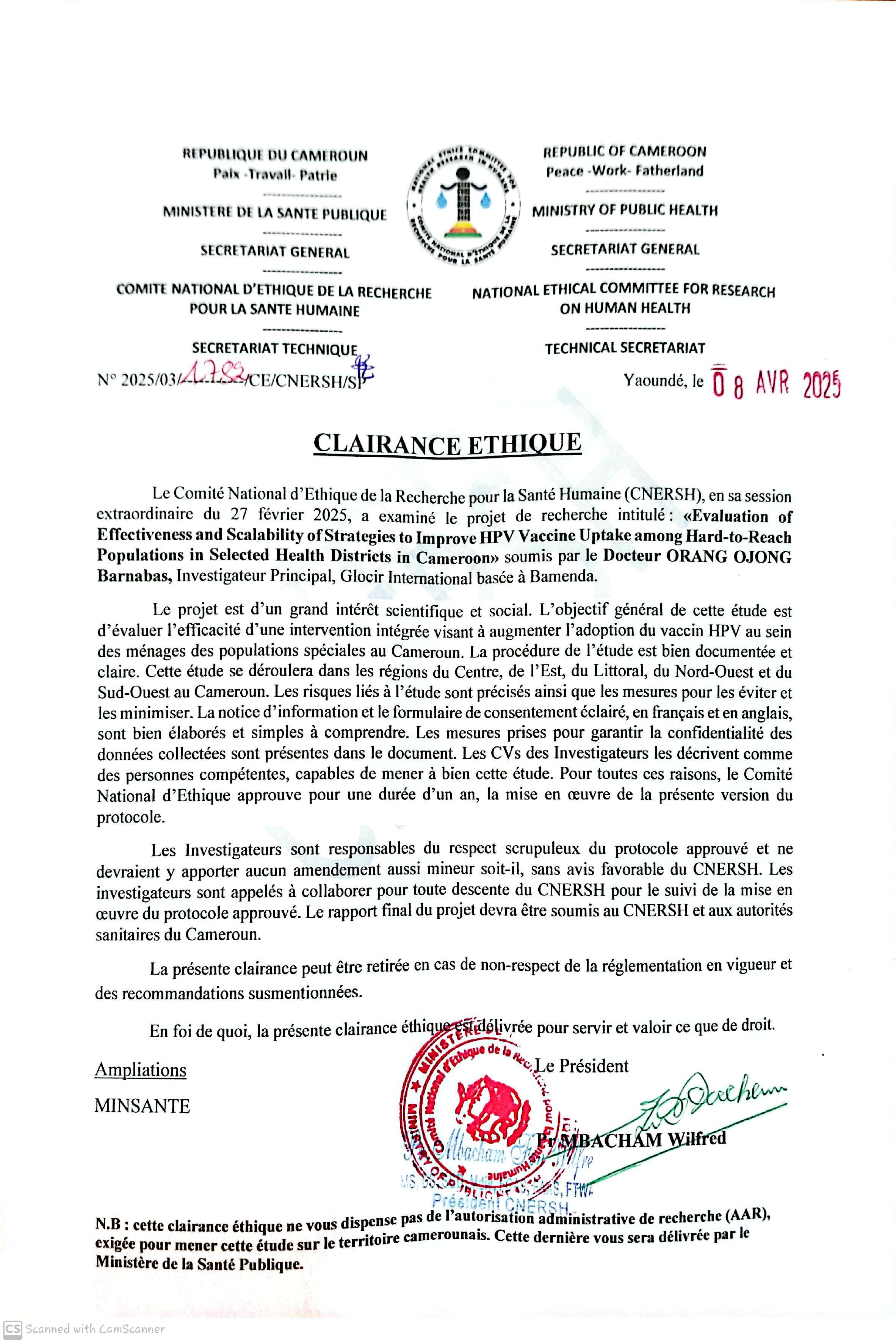Global Commission for Cultural Investment and Illumination for Restoration (GLOCIR) is a registered non-for-profit, Non-political and Non-religious youth and women led National Non-governmental organization in Cameroon with a
MISSION TO ‘’ Enhancing and building sustainable development of communities’’,
A VISION: ‘’to a one flesh, one energy, one people for the sustainable development of communities and Humanity from grassroots to the Nation’’
And
A MOTTO: ‘’TO LIVING THE DREAM TODAY’’
GLOCIR headquarters is located in Bamenda (PNEU ROAD, MAYORS STREET, MILE 3 NKWEN), North West Region and operational branch offices located in
1) NORTH WEST REGION
– Mezam Division – HEAD OFFICE ( PNEU ROAD Mayors street Mile 3 Nkwen Bamenda)
– Mezam Division – Tubah Sub Division (Sabga)
– Ngoketunjia Division ( Bamunka(Mbuekong Quarter) and Bafanji ( Mbangang Quarter)
– Momo Division (Njikwa- Konda and Eberenyi)
2) SOUTH WEST REGION
– Meme Division – Bai-kuke
– Ndian Division – Isangele (Bakassi)
3) LITTORAL REGION
– Bonasama
4) CENTRE REGION
– Nkolbikok
5) EAST REGION
– Nguelemendouka
– Nomedjoh
GLOCIR was created on the 12th of June 2006 and officially registered in 2012. (52/E.29/1111/VOL.8/ALPAS of the 26th of December 2012), and approved to a Non-Governmental Organization by Cameroons ministry of territorial Administration 000367/A/MINAT/SG/DAP/SDLP/SONG/BA on the 03rd November 2025.
The objective of creation of GLOCIR in which it has had more than 11 years field experience has been to:
1) To create a supportive environment for refugees and internally displaced persons.
2) Promote the development and well-being of women through gender equality.
3) Foster the prevention of unwanted pregnancies in young girls.
4) Identify hidden and emerging talents in youths and underprivileged children to reduce unemployment and poverty.
GLOCIR in the field uses 3 (Three) main implementation approach which are
- Community driven and directed intervention approach.
Building up resilience and finding durable solutions to contribute to the prevention, response and mitigation of identified problems through community members and community structures. Our community driven and directed intervention approach is built on the strategy of identifying problems through the people, designing response through the people and implementing response through the people.
2. The participatory approach:
Alongside with the government and existing local actors GLOCIR Maintains a participative process that is localized, ensuring the localization of the response and seeking opportunities with local and state actors/structures whom will be key in sustainability of the projects on ground and in the field.
And
3. The protection approach:
In line with SOPs and AISC guidelines, GLOCIR is keen in implementing protection response plans, protection priority response focusing on protection monitoring, identification, analysis and response to critical protection risk, violations of human rights and protection of vulnerable groups.
ETHICS AND COMPLIANCE
GLOCIR working in compliance with the laws of Cameroon and with the IASC guidelines for each thematic intervention enshrined in our PSEA policy that binds all staff, volunteers, partners and collaborates with a standard induction procedure in which all operational team members signs a binding PSEA commitment form, Clients Responsiveness and Accountability is ensured through our feedback mechanism channels. PSEA has an independent contact that is made available to community members and staff through IEC material to anonymously report any acts of misconduct. GLOCIR has a safeguarding policy that helps all operational team members from committing acts that implicates the work of GLOCIR in the community and ensures that the “Do no Harm” and ‘’Leave No one behind’’ policy is respected amongst other protection principles. GLOCIR has an ethics and compliance unit with a focal person from the senior management team that is charged with the responsibility to handle cases of misconduct on PSEA and of any kind. The focal person acts immediately and confidentially keeps records and met out sanctions as declared by the Ethics and Compliance Unit (ECU).GLOCIR in executing its project activities takes into account project management and administrative procedures/policies. The project begins with a detail implementation plan drawn by Project Management team, lunching of activities after recruitment of staff, implementation of activities, monthly monitoring, and contracting supplier’s procurement policy which is also binding to our service deliverers.
All the activities are implemented with regards to administrative and financial policy where payments are done by bank to bank transfer including salaries of workers upon approval of work plan, time sheets, attendance; taxes at taxation and CNPS always paid for all staff and monthly evaluation not withstanding tracking of success stories within life wire of the project. Access and security is used to ensure community acceptance in compliance with humanitarian principles and relevant local norms. Be interventions with the assistance of Humanitarian Access and Liaison officer who works together with community focal points and other relevant community stakeholders to ensure sustainability of GLOCIR’s various field project implementation.
